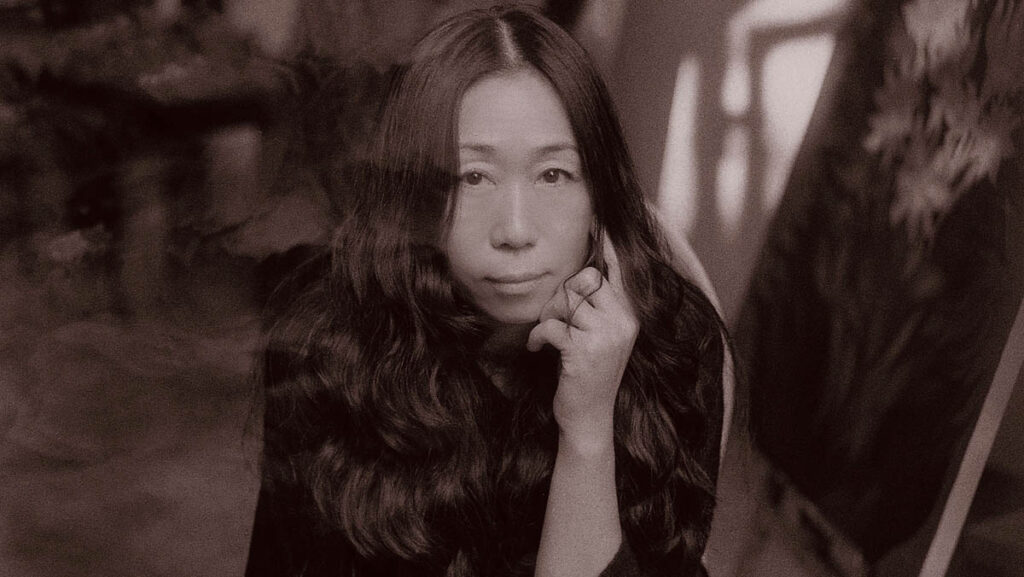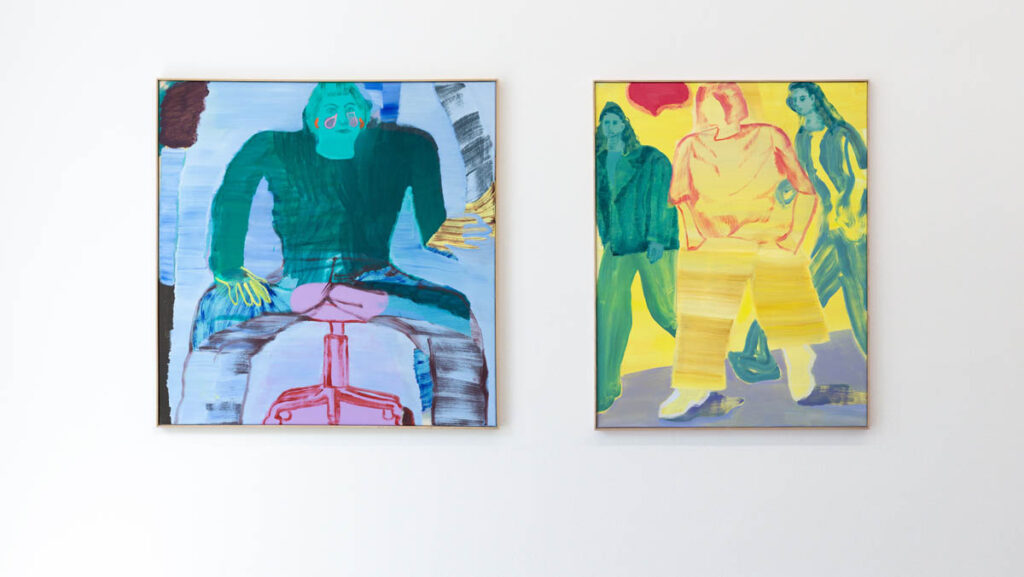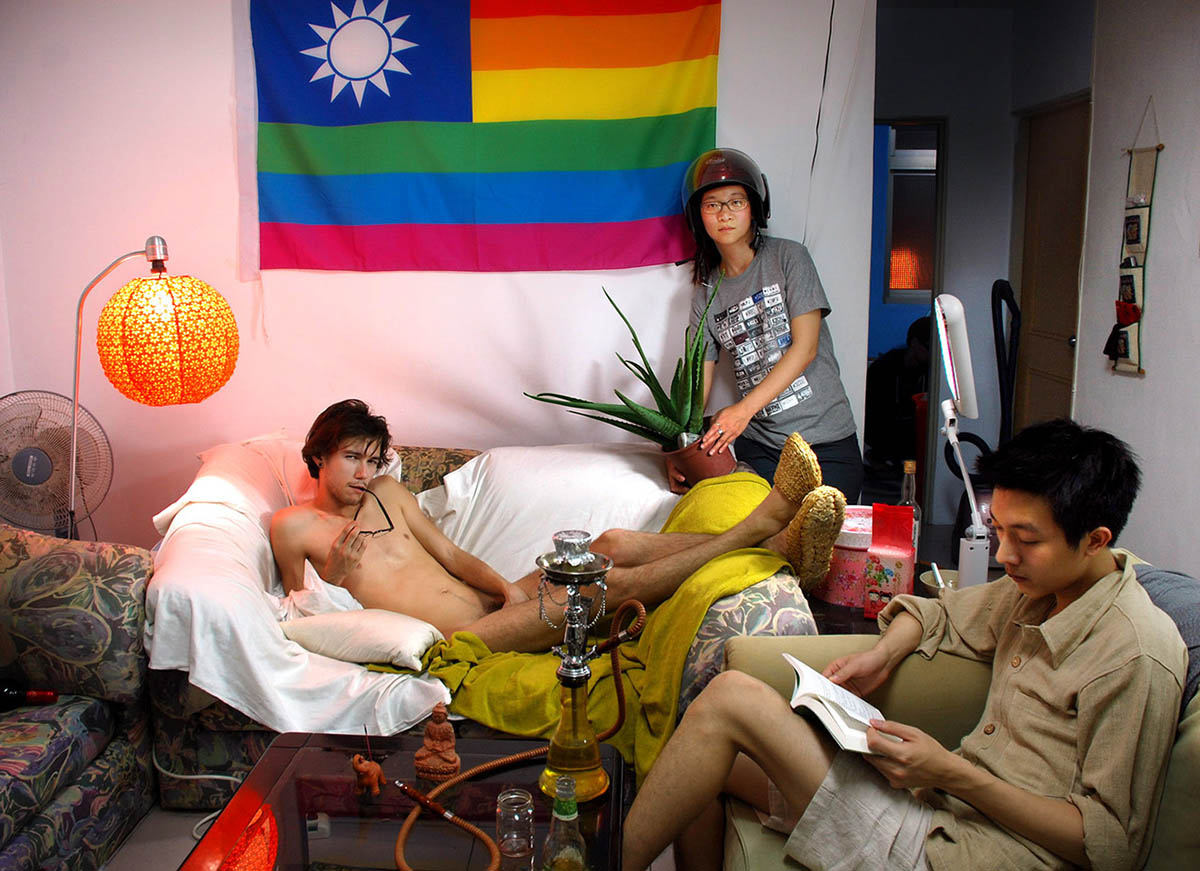
Where island arcs and tectonic plates intersect, an island rose from the waves whipped up by currents and the Pacific Ring of Fire. Millions of years of geological movement have shaped it into an island of mountains. Prehistoric people followed land bridges and braved the waves to gather there from all directions to proliferate. Of the many names bestowed upon the island, the name “Tayouan” was first used on a map published in 1726 by Dutch minister Francois Valentijn. The map depicted Taiwan from the view of someone facing the island from the sea. A sandbar was depicted on the map, in the area now known as Anping District.
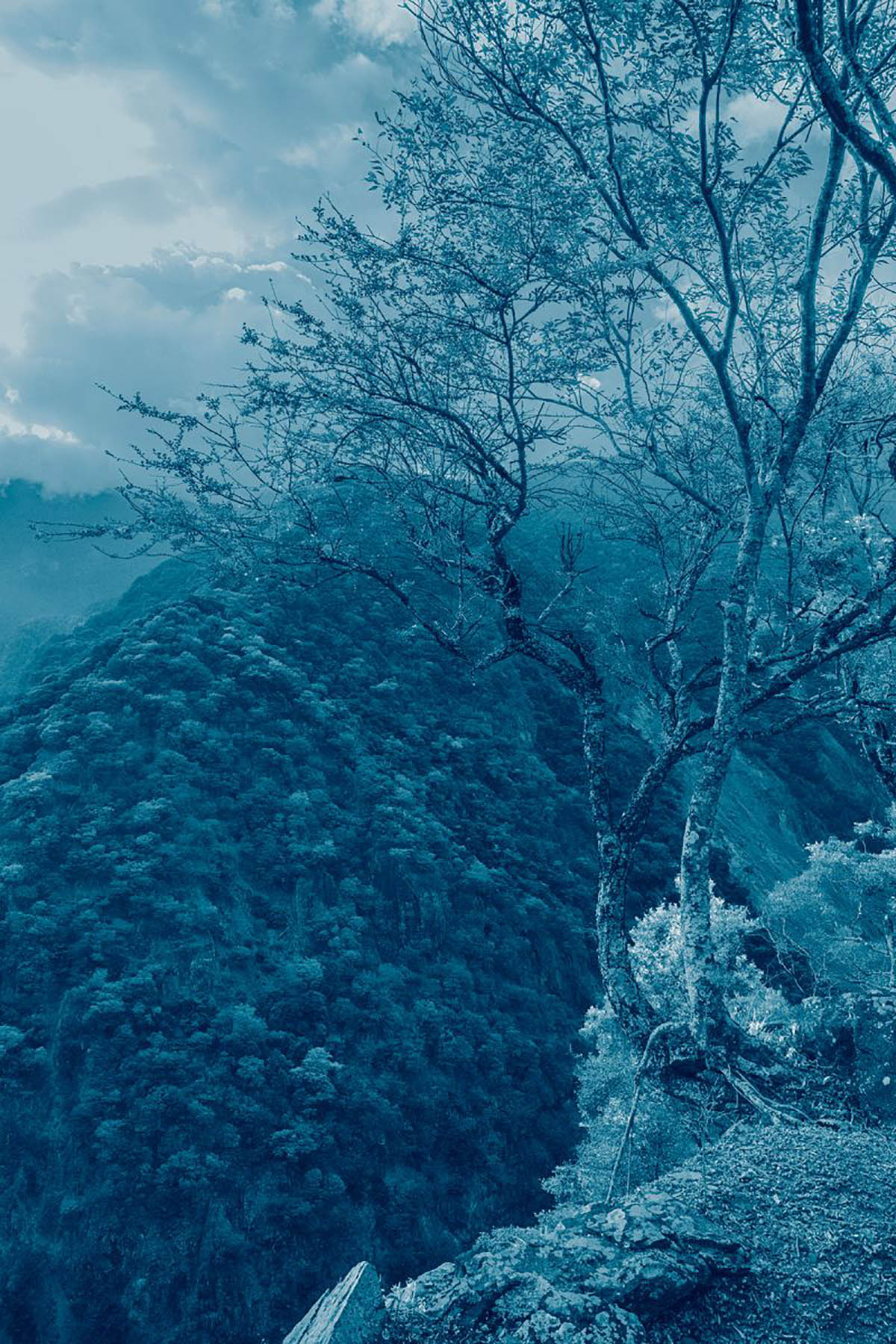
The Siraya word for sandbar is Tayouan. The Siraya had observed many foreign travelers passing through this location, so the name “Tayouan” signified “land of the outsiders.” Today, Taiwan has become home to the descendants of those outsiders. Throughout history, Taiwan has been a major trade node in international trade networks due to its location at the converging points of ocean currents. In addition, Taiwan has been a strategic station for Austronesian people setting off on ventures around the world. As a rich combination of Chinese and Austronesian cultures, Taiwan also displays the influences of all settlement waves: generation after generation, visitors and dwellers have turned Taiwan into a homeland.
20 million people live and thrive nowadays on this mountainous island rising out of the waves. This exhibition presents the contemporary faces of Taiwan from the dual perspectives of the natural landscape of mountains and rivers and the cultural landscapes of people and society.
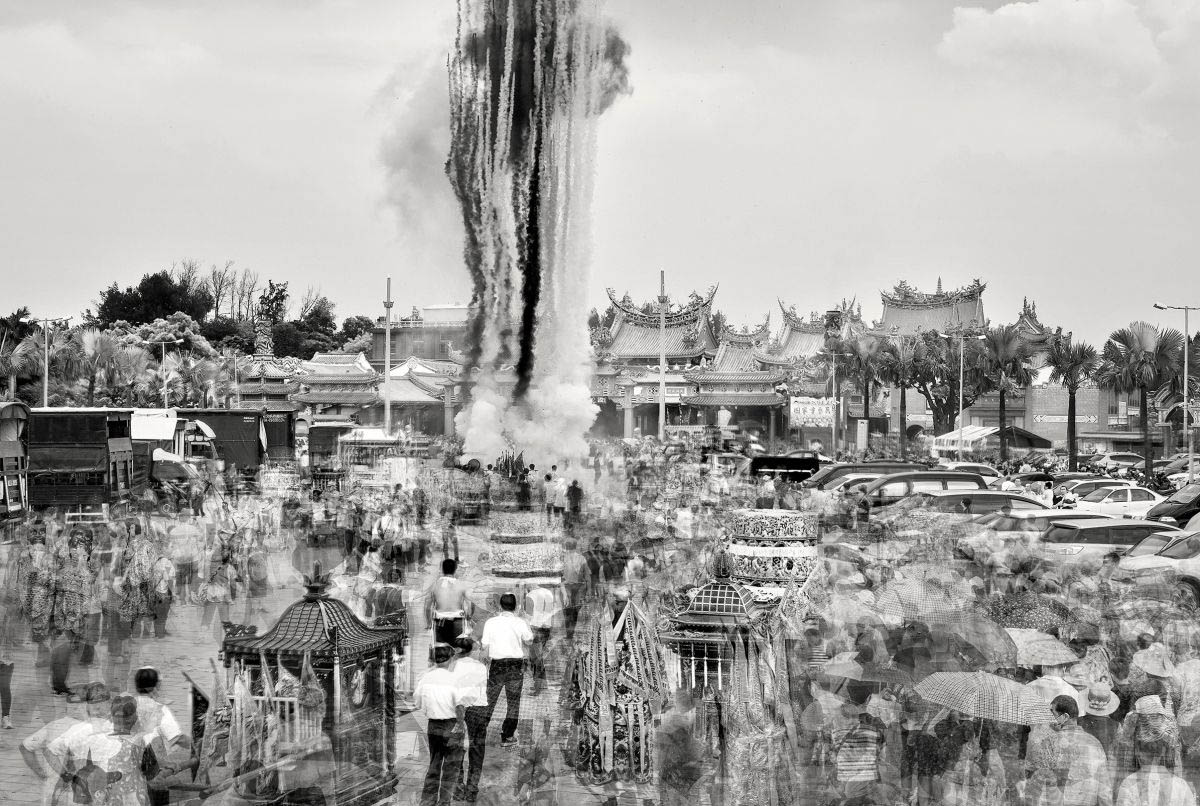
“Island of Mountains” with works by Hsu Cheng Tang, Lee Hsu Pin and Wu Sih Chin
As an island formed where tectonic plates intersect, hills and mountains make up 70 percent of Taiwan’s territory. Due to its various and inaccessible terrain, a diverse topography and forest ecosystem were formed over time. During times of colonialism and authoritarianism, due to geo-political and strategical reasons the access to the mountains was heavily controlled and only after the lifting of martial law, various restrictions were removed, allowing people to roam through the mountains at ease. “A trip into the forests is like a journey to the past, opening up records left by our predecessors. The footpaths lead one into the forest of time, the valleys carved as though it were vinyl records storing the songs of history. As we traverse along the river, the stories of the mountains reverberate through our chests like the most beautiful music.”
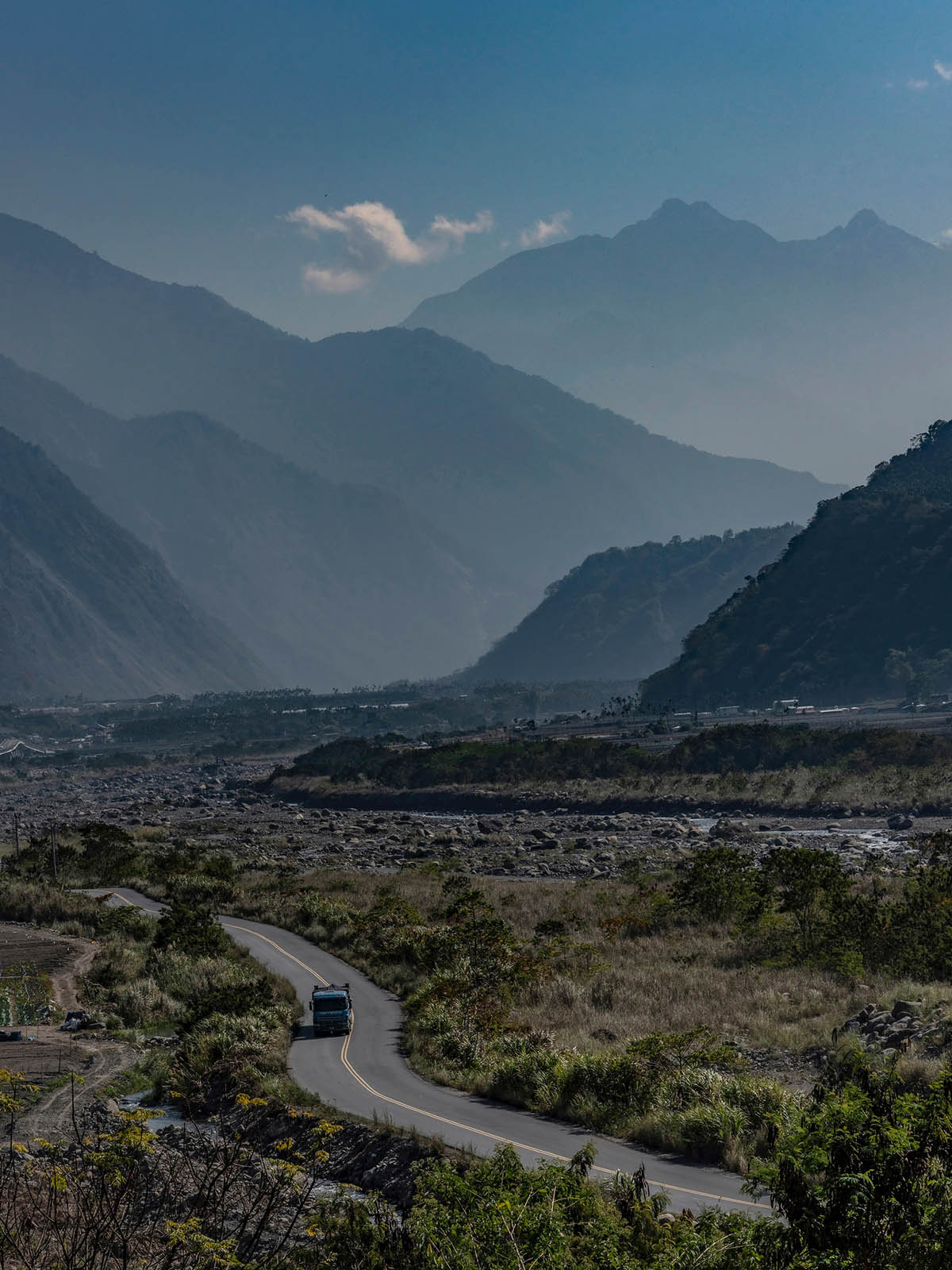
Hsu Pin Lee Hsu Cheng-Tang’s photography works in his “In Search of Zhuoshui River” collection testify of his ongoing fascination with the rivers: he leads on a journey from the ocean, upstream into the mountains, in search of the primal state of coexistence between humans and river. Lee Hsu-Pin’s work “The Scenery Enroute” is a record of his extensive walks into the forest over the past few years, in an attempt to capture images that have been reduced to shadows of the past, approaching the landscape as a metaphorical fossil, a witness to the spiritual and personal journey the inhabitants have undertaken there. Wu Sih-Chin’s “Muntjac Imitation” allows us to observe the habits of the Muntjac through the lens of the experience of indigenous hunters who employ the most effective sensory tracking technique in the mountains.
These three artists track the traces of the river courses and of mountain trails from past to present and attempt tapping into the consciousness of the natural world in order to allow an intimate and exceptional perspective on Taiwan, the island of mountains.

“Homeland for All People”, with works by Chen Po-I, Robin Wei, and Tzeng Yi-Hsin
With a rich blend of ancestral lineage and shaped by several historical foreign rules, Taiwan has developed a remarkable capability for the acceptance of all genders, religions, cultures, and races. On the background of a turbulent history of long periods of colonial rule and oppressive nationalism, and of an amalgam of different ethnic groups and a large diversity of beliefs, Taiwan has developed a contemporary society governed by liberal principles and humanistic values such as democracy, freedom, and equal rights.
Chen Po-I’s work “The Temple Gateway Square” focuses on the religious and cultural center of Minnan settlements. Through long exposure photography, he captures the passage of time viewing people go about their daily activities and participating in religious ceremonies. One of his main subjects is addressing the square in front of a temple the focal point of Taiwanese culture and the role it plays in daily life. Wei Robin’s works originate from hundreds of workshops and visits through the villages and the landscape of his home region of Zhongpu, Chiayi. A retired lieutenant colonel, Robin Wei has led countless students of photography to visit remote villages of Chiayi capturing portraits of the elders. Part documentary photography, and part oral history project, Wei’s work also highlights the social aspect of integrating the elders in the community. Tzeng Yi-Hsin ’s “Masterpiece Series” challenges the authority of classical painting through iconographic reconstructions with self-identified non-binary participants.
Tzeng attempts to deconstruct the main idea of beauty and authority giving the individual a new power of appropriating images while reconnecting to one’s own identity. Tzeng removes so-called master paintings from the canonical domain of the white cube and replaces them in the private space of queer communities. These three artists’ different perspectives on community and sexuality, showcase Taiwan’s modern society’s adherence and practice of humanistic values and concepts.
“Tayouan – Homeland of Hybridity” attempts a comprehensive approach to both the natural and cultural landscape of a country, that after centuries of constant transformations has morphed into a place of diversity and inclusion.
Twofold exhibition: “Island of Mountains” displays works by Hsu Cheng Tang, Lee Hsu Pin, and Wu Sih Chin, “Land of Ten Thousand People” comprises works by Chen Po-I, Robin Wei, and Tzeng Yi-Hsin.
Exhibition duration: 02.08 – 26.8.2024
Opening: 01.08.2024, 18 o’clock
Curator / Co-Curators: Hsu Pin Lee, Nicole Dai and Anne Avramut
This exhibition is sponsored by the Ministry of Culture, Republic of China, Taiwan
Address and contact:
Bank Austria Kunstforum Wien
Tresor and Atelier
Freyung 8, 1010 Vienna
www.kunstforumwien.at
Born in 1972 in Chiayi, Chen Po-I received his PhD degree in Ocean Engineering at National Cheng Kung University (NCKU) in Taiwan (2018). As a photographer, Chen’s works concern the humanities and social aspects of Taiwan, using his lens to connect himself with the greater context of Taiwanese society. With this, his photographs have the power to express the collective memories of Taiwan. His photographic works are frequently invited for exhibitions, recently include The Pioneers of Taiwanese Artists, 1971- 1980 (The National Taiwan Museum of Fine Arts, 2014)), Lendemain Chagrin (Maison Européenne de la Photographie, 2016), Tell Me a Story: Locality and Narrative (Fondazione Sandretto Re Rebaudengo, Italy, 2018), 2022 Mattauw Earth Triennial (Tsung-Yeh Arts and Cultural Center, 2022). At this moment, Chen is actively engaged in photography education and also works as a curator of Tainan International Foto Festival. Some of his photographic works now become the permanent collection at National Taiwan Museum of Fine Arts (Taiwan), Museum of Fine Arts, Kaohsiung (Taiwan), Kiyosato Museum of Photographic Arts (Japan), Maison Européenne de la Photographie (France) and are also collected by private collectors. Records of the Relocation of Hongmaogang Village-Chen Po-I Solo. Exhibition is shortlisted for the 13th Taishin Art Award.
Born and raised in Taipei, Taiwan, Tseng Yi-Hsin has been working in both fields of painting-making and art education for a long time. She specifically pays attention to the life experiences of women and sexual minority groups in Taiwan. Tzeng prefers to apply various approaches to reinterpret the meaning of paintings. Meanwhile, she enjoys using the method of “de-facing” to explore the relationship between identity, sexuality, and memory. In addition, her work has been exhibited internationally. She was also the recipient of several artist residencies, including Watermill Center run by Robert Wilson, Vermont Studio Center, the Elizabeth Foundation workspace in NYC, Ox-Bow in Chicago, Atlanta Contemporary Art Center, AIR program supported by Asia New Zealand Foundation as well as Wanderer Plan from Cloud Gate Foundation.
Wu Sih-Chin integrates various art forms including imagery, sculpture, new media, and spatial installations in his creative practice. He constructs specific narratives by exploring research topics such as natural ecology, archaeology, and ethnography, establishing interpretive methods through connections across different times, spaces, and dimensions. He has been in residence at the National Museum of Prehistory(Taitung/Taiwan) and the Centre del Carme Cultura Contemporània (CCCC, Valencia/Spain). His recent solo exhibitions were held at the National Taiwan Museum of Fine Arts and the Kuandu Museum of Fine Arts. He has also participated in group exhibitions such as the Asian Art Biennial, the Taiwan International Video Art Exhibition, and the Pan-Austro-Nesian Art Festival. Currently lives and works in Taitung.
Wei Robin, born in 1967 into a family of farmers in Chiayi, Taiwan. Master of Arts in Journalism, Chinese Culture University, Taipei, Taiwan. A retired lieutenant colonel soldier, who, after 22 years of military career, devoted himself to humanity photography projects and teaching. Since 2016, Wei’s photography classes have been bringing students into the most remote villages of Chiayi. The goal of visiting 500 villages in 10 years is predicted to be reached in 2025. Wei is now a farmer, a lecturer, and a photographer. He authorizes two books: Mobile Photography Book (2020), Chiayi Tobacco (2021). The latter is a treasured photography book with profound historical meaning published by the Chiayi County Government.



